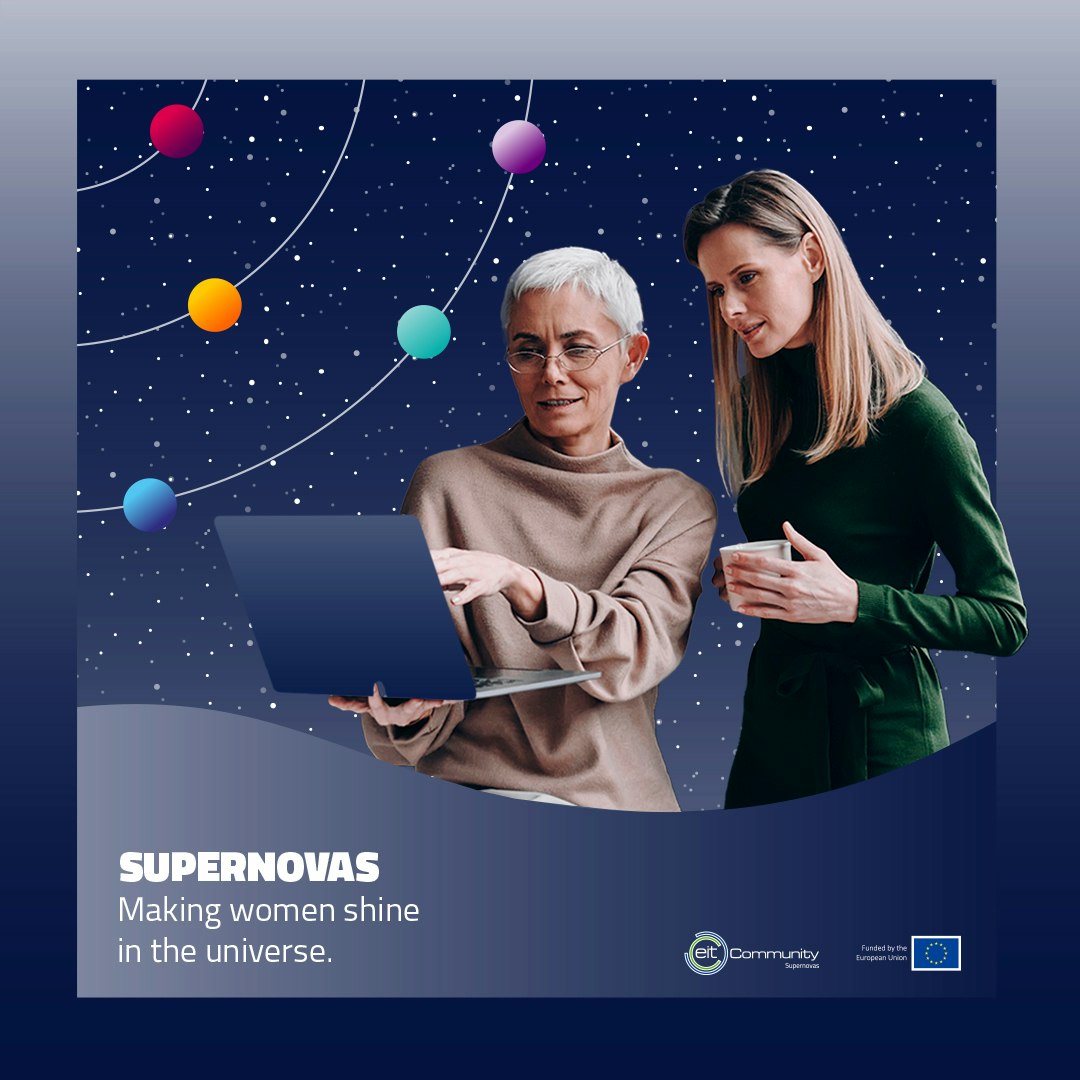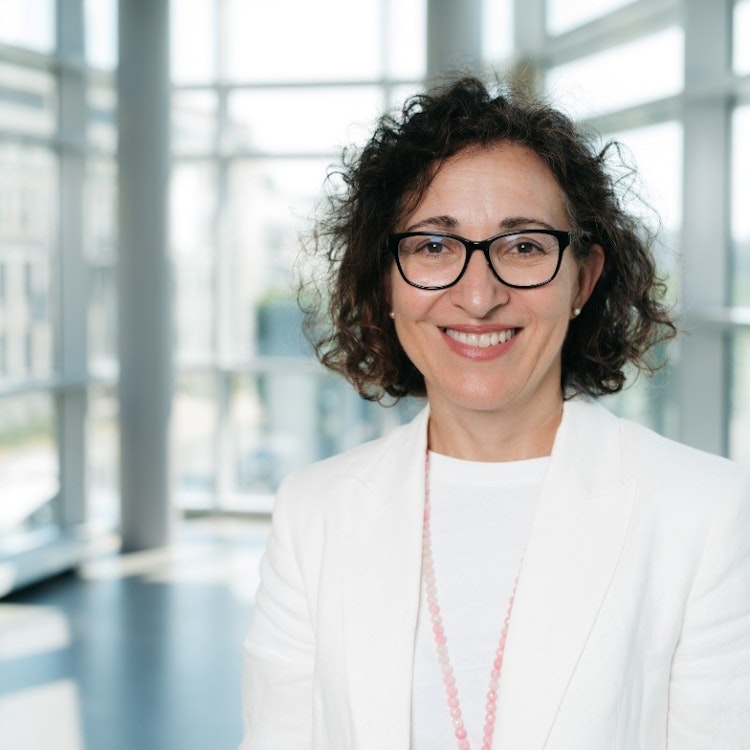There’s a gender problem within deeptech: only 15% of Europe’s startups in the sector are founded or cofounded by women, with just 7% founded by all-women teams.
The disparity continues throughout the ecosystem: those that do make it into entrepreneurship then typically raise less VC funding than their male counterparts, says the European Institute of Innovation and Technology (EIT). Across Europe, just 2% of venture capital goes to all-female teams, and around 5% to mixed-gender teams.
From a lack of entrepreneurship education for young girls to investor attitudes towards a different kind of leadership, here’s what women in the field reckon are the main barriers stopping more from accessing the industry - and what can be done to bridge the gap.
Sector oddities
Being a female founder in a male-dominated sector like deeptech can lead to some common frustrations. One example is being treated differently because of how few women are in the sector, says Maxine Roper, founder of Connecting Food, which offers a blockchain-based platform to track food through the supply chain journey.
If someone comes and sells me the world, I’d be suspicious.
But while it’s a bugbear, she adds that the acknowledgement that it’s unusual is a step towards rectification, “to help to identify what needs to change in order to encourage more female founders in deeptech”.
Fundraising can be a big difficulty, says Sonia Hurtado Piñol, cofounder of alternative protein startup Poseidona. When she and her cofounder, María Cermeño, were raising an early round, Hurtado Piñol says that she noticed a major difference between the style of her cofounder and the approach to pitching that she had seen before.
“Male founders go into VC conversations with a hyper-confident [energy],” she says. “[But] I’ve seen María, and she’s super knowledgeable and badass, but sometimes she doesn't show this confidence because she’s humble.”
While some VCs weren’t receptive to the more understated approach, Hurtado Piñol says that she sees it as a positive trait and wishes more investors would too.
“If I was a VC or customer, I would see that as a good sign, because this person is not gonna lie to me - she's gonna tell me what she's capable of doing. If someone comes and sells me the world, I’d be suspicious,” she says.
Part of the problem is also the lack of representation amongst investors. The EIT says that 85% of investment committees are all male, and just 13% of VC partners are female.
“[In my experience,] they have a lot of sympathy for young guys that are super confident and they pitch like, ‘I'm going to save the world,’ but we have a different style,” says Hurtado Piñol. “I guess they see them as themselves, years ago.”
However, there is slow progress towards representation at the VC level. Hurtado Piñol and her cofounder have a group of female angel investors on board, and she says they are some of the most present and supportive members of the cap table.
For many women, there’s also the added pressure of looking after children. Iraxte Perales, founder of Microfy, became a mother two years ago and says that startup culture means it can be very difficult to combine the two worlds. While fathers do share some of the struggles of balancing parenthood with startup life, Perales says the challenge is often not felt equally by men and the onus of childcare tends to fall on mothers.
Education, awareness and data
A key way to address this gender gap is for interventions to begin early — and base them on data.
Roper believes some of the issues lie in education and promotion through media coverage, both of which affect the perception in society of what is possible for women.
I am almost always the only one, or among very, very few women founders in this area in all the events I go to.
“We can make a parallel in the sports industry where there have been amazing changes over the last 10 years in the development of women’s high-level sports,” says Roper. “Just look at women’s football in the World Cup and at the Olympic games. To get to this level, investment is needed in infrastructure and education from a young age.”
Effort from the ecosystem is also key. Programmes like the EIT’s Supernovas scheme provide female founders in deeptech with a space to access training resources, advice and support, plus mentorship from other experienced female founders and operators.
“Supernovas overall goal is to increase the presence of women in the innovation ecosystem, both from the entrepreneurship and investment point of view, but with a stronger focus on investors as decision makers of where the money goes,” says Amparo de San José, South Europe business creation portfolio manager at EIT Food. “We work at the entry level, encouraging more women to enter the space and play an active role as investors, and at later stages in their professional careers, enhancing their skills to take on further leadership and management roles in the investment industry.
“To close the loop, we connect scaling women-led startups with the community of investors rising from our programmes,” she adds, noting that soon, a report on the reality of women-founded deeptech startups in Europe will be released in collaboration between the EIB Advisory, EIF and EIT, co-financed by the European Investment Advisory Hub (EIAH).
It’s something Roper feels she has been missing in recent years.
Women need to be where decisions shaping the type of innovations reaching the market are made.
“I am almost always the only one, or among very, very few women founders in this area in all the events I go to. It is a male-dominated area and unfortunately, I have no or very few female mentors to talk to or to look to for inspiration,” she says.
One element of the Supernovas programme is encouraging more women with academic backgrounds in STEM to see investment as an option. It also offers a professional development opportunity for female investors to upskill and network once they’ve chosen the profession, connecting people in the ecosystem together.
“Women need to be where decisions shaping the type of innovations reaching the market are made. For this reason [one section of the Supernovas programme] Women2Invest targets women with strong scientific and technology expertise to encourage them to explore a career in venture capital,” says San José.
Tackling this problem is also a question of community: as more female founders enter the space, the support for each other within the industry — and the resources they can pool — grows.
“In the past, I remember missing that [support] — I could see this brotherhood between male founders and I was not seeing that in the female founders,” says Hurtado Piñol.
But now, the budding support groups found in the group chats being set up in the sector’s ecosystem give her hope for a future where more women feel able to enter the deeptech industry, and are already a sign of progress.
“We support each other - if I can help them, I will, and they will do the same for me.”
SUPERNOVAS seeks to unleash the potential of women, in order to break barriers and increase female presence in the entrepreneurship, innovation and investment ecosystem. Learn more here






